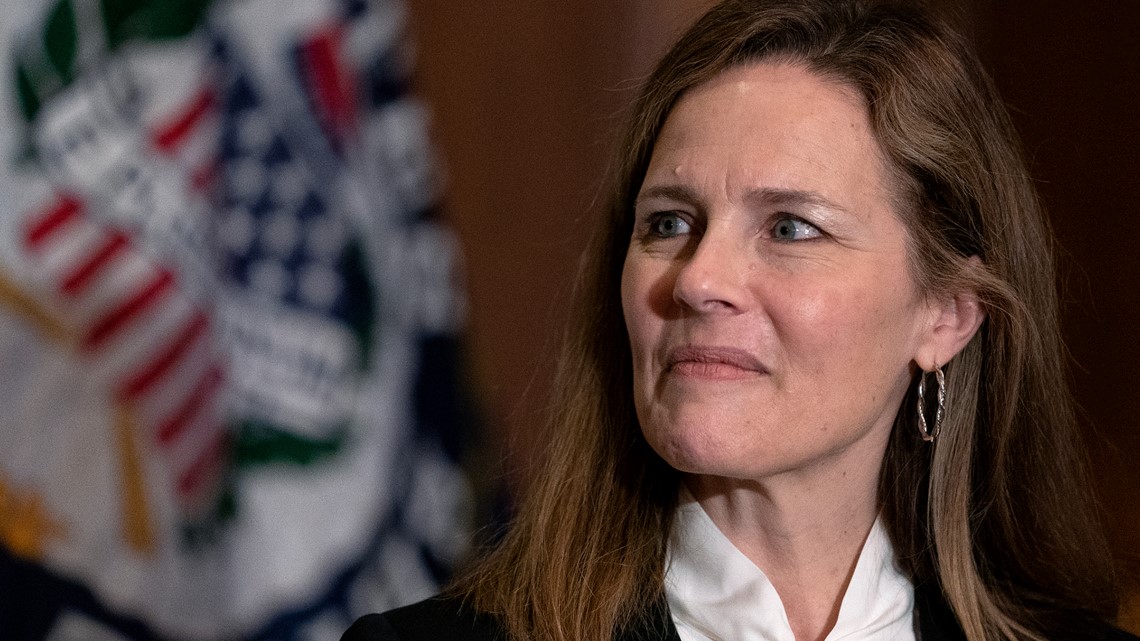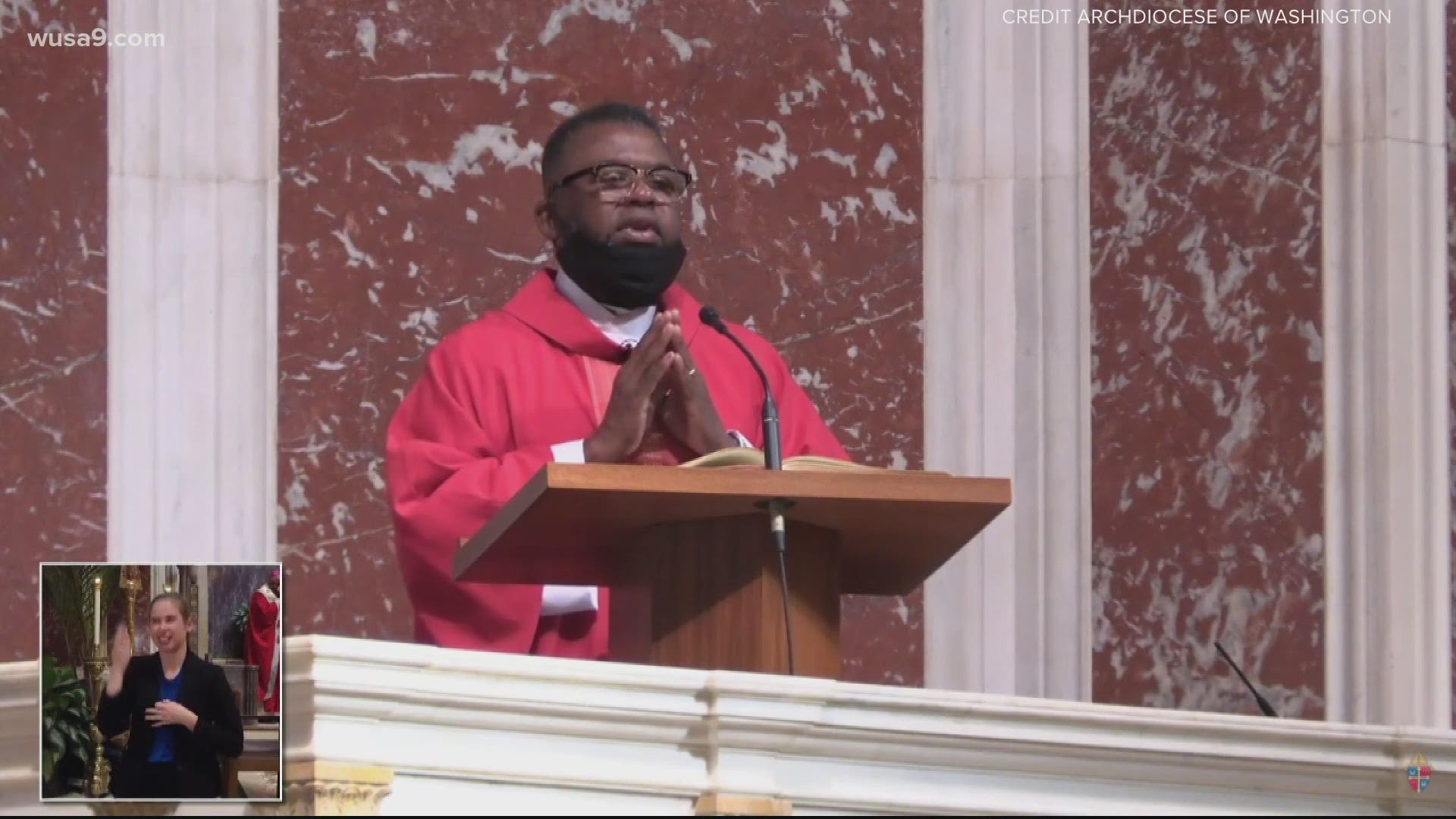WASHINGTON — The Senate is shut down by COVID-19 infections, but Republicans are refusing to delay confirmation of President Donald Trump's pick for the Supreme Court. They are even willing to make special arrangements so sick senators can vote, and Democrats appear powerless to stop them.
Sen. Ron Johnson, R-Wis., said Monday that he'll go to the Capitol “in a moon suit” to vote if he's still testing positive for the coronavirus, which has killed more than 209,000 Americans and infected millions.
The push to put conservative Judge Amy Coney Barrett on the high court before Nov. 3 is like nothing seen in U.S. history so close to a presidential election. Trump's nomination of Barrett in a Rose Garden ceremony apparently became ground zero for the infections now gripping the president, his White House and its Senate allies. Three GOP senators, including Johnson, have now tested positive for the virus and several more are quarantined at home — denying Republicans a functioning majority.
Sen. Lindsey Graham, chair of the Judiciary Committee, said after talking by phone Monday with Trump that the president is “very excited about Judge Amy Coney Barrett being confirmed to the Supreme Court.”
The Judiciary Committee announced Monday that hearings on Barrett's nomination are scheduled for 9 a.m. Eastern, Monday, Oct. 12, through Thursday, Oct. 15.
The rapid pursuit of Trump's third court nominee is as much about securing a conservative court for a generation to come as it is about giving Republicans what they see as their best chances at reelection. Senate Majority Leader Mitch McConnell announced the chamber would close to legislating through Oct. 19 over the COVID-19 infections, but the court hearings will go on as scheduled. With Trump trailing Democrat Joe Biden in polls and their own Senate majority at risk, Republicans hope a Supreme Court vote in the week before Election Day will save their jobs.
Senate Democratic leader Chuck Schumer said Monday that the Republican leadership “has truly lost touch with reality if it’s contemplating marching COVID-stricken members to the Senate to rush through a Supreme Court nominee.”
As the COVID-19 crisis envelops the Capitol, hearings are set to begin in one week on Barrett’s nomination. There is still no mandatory, routine, on-site testing protocol for lawmakers and staff, drawing a near revolt from staff in some offices worried about the health risks. The Judiciary Committee is planning four days of hearings ahead of a final Senate vote Oct. 29.


Over the weekend, one senator suggested senators can vote from sickbeds if need be. There's a long tradition of ill senators “being wheeled in to cast critical votes,” said Sen. Tom Cotton, R-Ark., on Fox News Channel.
“Where there is a will, there's a way,” said Johnson on KHOW-630 radio.
Senators on the Judiciary Committee will have the option of connecting virtually, which will be needed as two of the panel's Republicans, Sen. Mike Lee of Utah and Sen. Thom Tillis of North Carolina, are among those diagnosed with COVID-19. Many House and Senate panels have been operating in a hybrid capacity during the pandemic.
Voting, however, is a different matter. The Judiciary Committee technically requires a presence from senators voting to send the Barrett nomination to the full Senate for confirmation. But the committee, controlled by Republicans, could potentially alter its rules to accommodate the quarantined senators.
The floor vote, expected the week of Oct. 26, provides another hurdle. McConnell has a slim margin, 53-47, meaning with three GOP senators now infected with COVID-19, and others home isolating, he would need to rely on Vice President Mike Pence to break a tie vote.
Advisers to Republicans suggest any sick senators can simply vote from upstairs in the galleries overlooking the Senate floor.
Outside groups are mobilizing alongside Democrats to protest the unusual process that's about to unfold.
Democrats and their allies point to the ways Republicans refused in February 2016 to consider then-President Barack Obama's nominee, claiming it was too close to the presidential election that year. Democrats led by Biden say the winner of the presidential election, Trump or Biden, should choose the nominee.
“They held a seat open for nine months. Certainly they can wait,” said Eli Zupnick, a spokesperson for Fix Our Senate, which advocates for rules changes including an end to the filibuster.
Zupnick said the Senate that is rushing to confirm Barrett is "the Senate that's on the ballot" this fall.
The Democratic-led House early on put proxy voting procedures in place so lawmakers don't need to trek to Washington to work. The Senate has resisted those options, except on committees.
___
Associated Press writer Mary Clare Jalonick in Washington contributed to this report.

